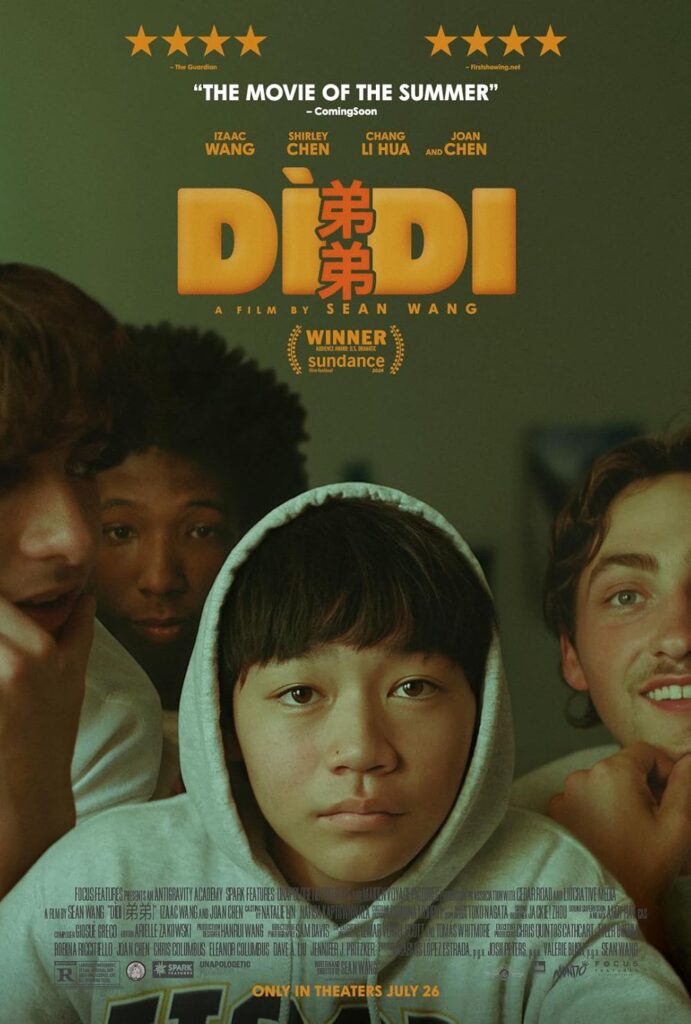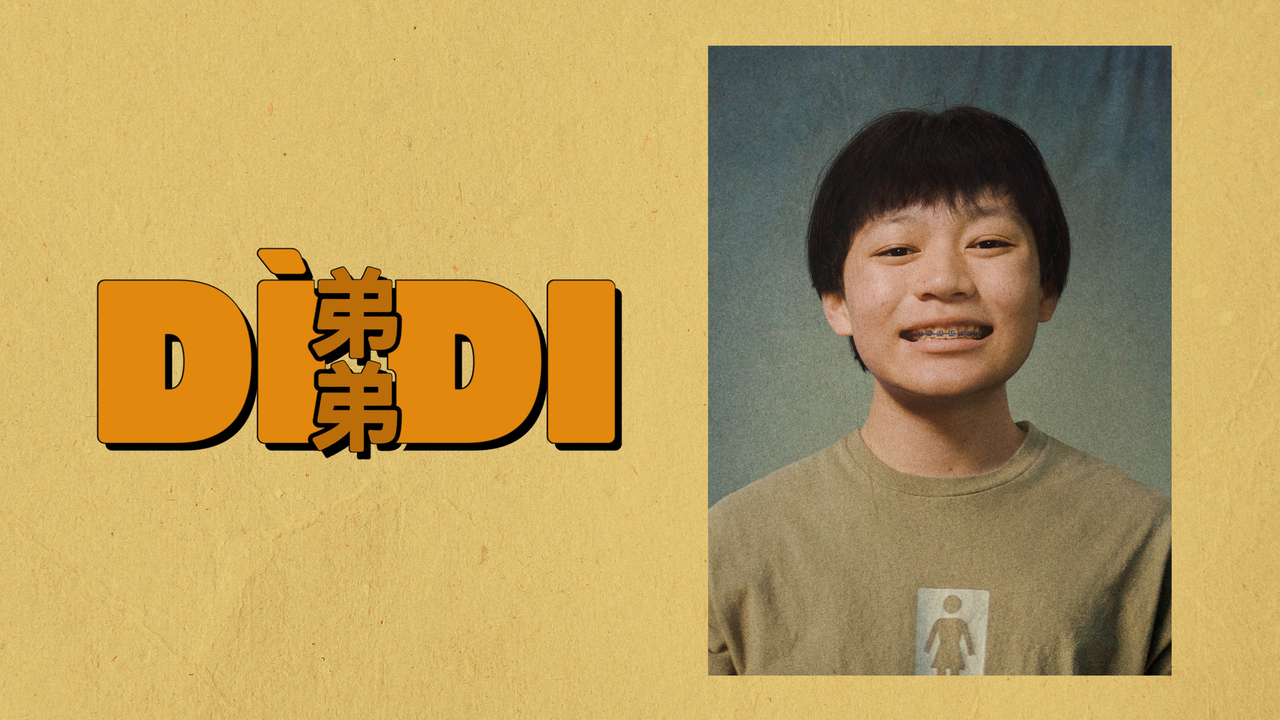by Enbion Micah Aan
語言:
English
Photo Credit: Film Poster
DIDI, THE FIRST feature-length film by a Taiwanese American director, Sean Wang, is a gentle and heartfelt tribute to the growing pains of adolescence.
The coming-of-age film is a well-established genre in cinema, and what makes the genre well-liked is often nostalgia and our empathy towards adolescent characters. With a gentle touch, Mr. Wang has succeeded in building Didi’s narrative with nostalgia for the early 2000s, with appropriate music, styles, and technology, and sympathy for the titular character Didi.
Didi, of course, means “little brother” in Chinese, and immediately, the title endears the audience to the main character, as we see Chris Wang, as a “little brother”. Issac Wang’s performance has rightly been well-received and praised by both the critics and the audience. In a coming-of-age film, choosing the right actor is often the most challenging and most important part of a film. Issac Wang was certainly the right actor as he delivered a superb performance, portraying the character with understanding and great sensitivity.
What should not be overshadowed by Mr. Wang’s performance is the rest of the cast. Joan Chen, one of the mainstays of Asian actors in American and international cinema–having worked with luminaries such as David Lynch, Ang Li, Bernardo Bertolucci, and Wayne Wang–also delivered a sincere performance, crafting a believable character who is a mother and a struggling artist. Zhang Li Hua, the director’s grandmother also played the titular character’s grandmother. Perhaps precisely because Ms. Zhang is not a professional actor, her performance gives the film an authenticity that would otherwise have been hard to come by.

Photo credit: Film Poster
Using an actor who is not a professional is, of course, not new, and is a creative choice to enrich films. The rest of the cast were all equally good – it is with these great performances that Sean Wang created a narrative that feels authentic to our world.
Through the movie, we get to see how Chris’ relationships with others evolve, and how he had a hard time handling social and familial situations inside and outside of the home. The drama unfolds slowly, from comedic to dramatic, and we see how Chris slowly grows through difficult situations. The drama unfolds in a way that feels natural not just to the story itself but the characters within the story.
Growing up is never easy, but it is easy for us, adults in the audience, to understand and sympathize with Didi’s mistakes and appreciate his difficult social and familial situations. We see Chris’ errors and their consequences, but as an audience, unlike the characters in the film, we continue to identify with Chris’ struggles and empathize with him.
This may seem natural to us, but it is a difficult act to pull off from a storyteller’s perspective, after all, we would not approve of Chris’ actions in real life. That we can continue to have empathy for Chris despite his mistakes speaks to how well-written the story is and how well-directed the film is. Sean Wang’s writing in terms of dialogue and narrative structure is exceptional – the storytelling is gentle and never forceful or rushed, patiently building the characters and the story in a way that is absorbing for the audience. With Didi, Mr. Wang proved to be a talented and capable director, and we should be able to expect more from him in the future.
As much as I enjoyed Didi, however, I do find it an opportunity lost in terms of exploring the undercurrent of racial politics of the time – the late 90s and early 2000s were a tumultuous time in terms of racial politics. LA riots (1992) and the OJ Simpson trial (1995) were still fresh on the public’s mind, not to mention the post-9/11 Islamophobia.
Given that Didi has racially diverse characters in terms of their ethnic makeup, such themes could have been made more apparent. In Didi, themes along these lines were, at best, hinted at, if not outright brushed aside, but racial tension is clearly not part of the narrative. After all, Obama’s post-racial politics proved to be a facade, but the film treated racial politics with a clear post-racial sensitivity.
However, I am not asking Didi to be a film like Do the Right Thing. It simply is that, given the diverse cast, if racial politics were more well-addressed in the film, it could have been a great opportunity to complicate and enrich the film and possibly make it a timeless masterpiece.



